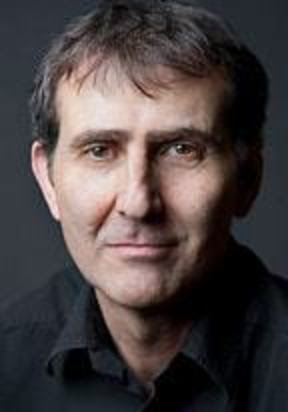Our Fragile Space: Protecting the Near Space Environment
When: Tuesday, September 12, 2023
Where: Elliott School of International Affairs
Our Fragile Space
Protecting the Near Space Environment
An Exhibition by Max Alexander
- 5:30pm | Welcome and Opening Remarks, Space Policy Institute Director, Scott Pace
- 5:40pm | Artist's Remarks, Photographer Max Alexander
- 6:00pm | Fireside Chat, Featuring Max Alexander, Moderated by Director of Space Applications Programs at Secure World Foundation Krystal Azelton
- 6:30pm | Closing Remarks and Invitation to the Reception and Exhibition, Space Policy Institute Director, Scott Pace
- 6:35pm-8pm | Reception | Exhibition Space, 2nd Floor Atrium, Elliott School of International Affairs
"For most of human history, space has been a remote realm, unreachable and mysterious. Earlier generations filled it with their various hopes, dreams and fears, all born in the inner reaches of the human psyche. Then in 1957, things changed. The former Soviet Union launched Sputnik 1, and we began filling space with actual pieces of hardware.
We have now transformed the orbital space around Earth into a technological bridgehead. In the process, we have proven the societal and scientific benefits of using this environment. With the tumbling cost of satellites and launches, more and more companies are thinking of how to use space. No longer can we consider it ‘outer space’. It has become ‘near space’, part of the Earth’s environment, inextricably linked to our way of life and the functioning of society. Instead of a frontier to be tamed, the near-space environment is one over which we must now exercise stewardship. As the problem of space debris increases, along with the sky becoming progressively crowded and light polluted, our new role is to ensure that space is used sustainably. This means guaranteeing the benefits remain available to future generations and also to preserve the night sky for humanity.
To tell this story, Max Alexander travelled to the top of volcanoes in the Pacific and Atlantic Oceans, clean rooms across Europe, mega-constellation launches on both coasts of the United States, and a farm in England. He also went on a journey through the space sector: government, space agencies, the military, regulation, insurance markets, academia, astronomy, and space sustainability enterprises. Through a series of reportage photographs and portraiture, he documents the benefits of using space, the cost to the near-space environment, and the beginnings of our stewardship. After seeing these images, our relationship with near space will never be the same again."
 |
An international photographer and creative strategist, Max Alexander specialises in science communication through visual storytelling. He works for a large number of prestigious organisations around the world including the UK Space Agency, European Space Agency, European Southern Observatory, UK research councils, book publishers and magazines. He has photographed Nobel Prize winners, astronauts and world leaders. Max has had two science-led exhibitions at the Royal Albert Hall in London: Explorers of the Universe and Illuminating Atoms. His passion for understanding the universe and making it meaningful to others has motivated him to work in this arena – and he is a Fellow of the Royal Astronomical Society. You can find out more about Max’s work by visiting his website. |

 Share
Share